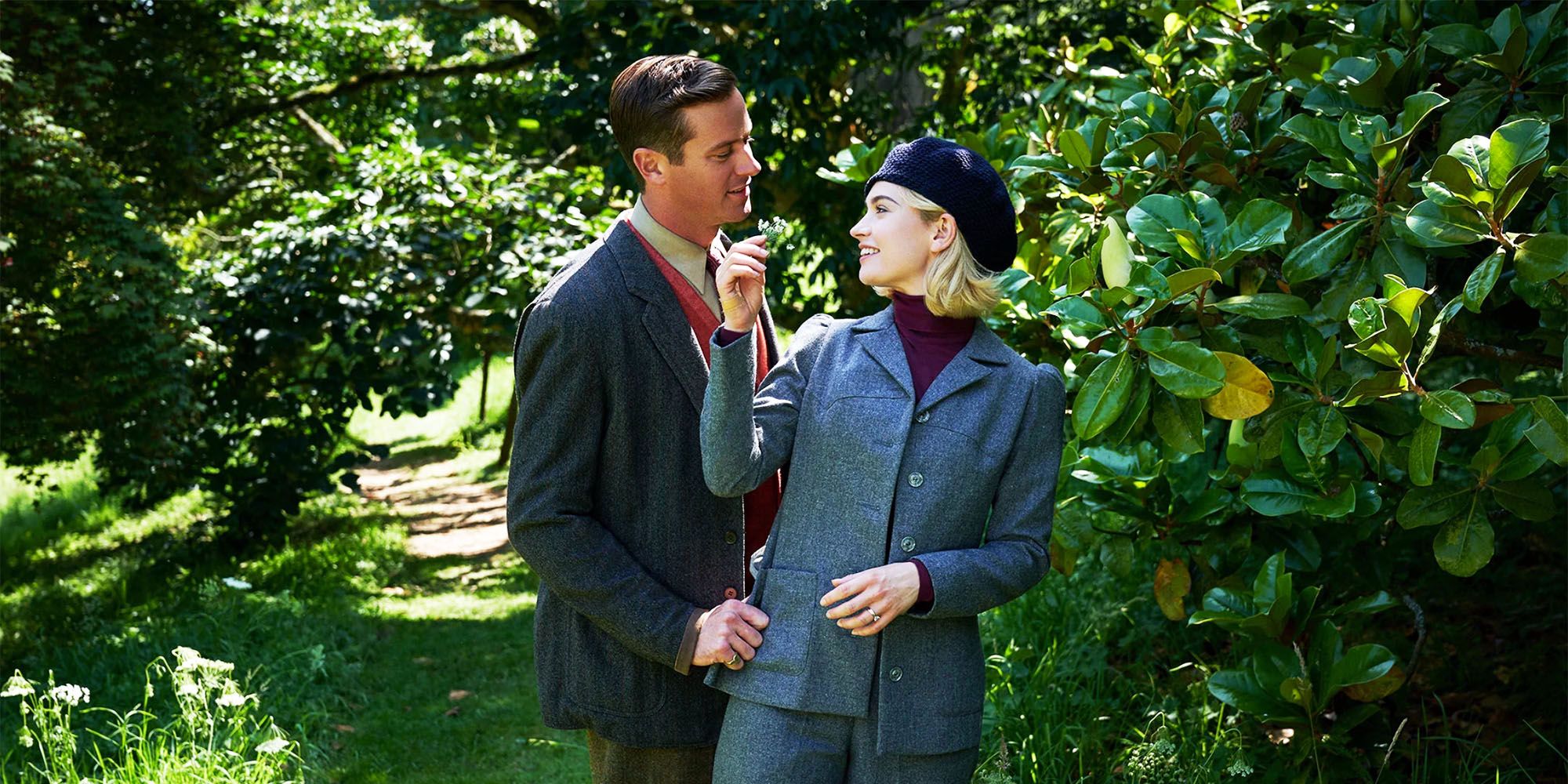Ben Wheatley's Rebecca is the latest effort to overcome the legacy of Alfred Hitchcock's 1940 film, but the largely negative reviews suggest critics are less than impressed by the Netflix remake. Based on the novel by Daphne du Maurier, Rebecca stars Lily James as a naive young woman who marries a widower, Maxim de Winter (Armie Hammer), and finds herself tormented by the lingering influence of his first wife.
Wheatley is best known for dark thrillers like High Rise and Kill List, as well as the comedic action film Free Fire. Though Rebecca is certainly a thriller, it's primarily a gothic romance with a focus on the relationships between women, which is something of a departure for the filmmaker. The 2020 adaptation of Rebecca was scripted by Jane Goldman, Joe Shrapnel and Anna Waterhouse.
Hitchcock's Rebecca casts a long shadow, and while the Netflix version is a new adaptation of the novel rather than a remake (unlike Gus Van Sant's Psycho, which was nearly a shot-for-shot remake of Hitchcock's film), it still has a hard time escaping that shadow. Wheatley's Rebecca has a score of 48% on Rotten Tomatoes as of the time of writing, and while some aspects of the film have been praised - particularly Kristin Scott Thomas's performance as the chilling housekeeper Mrs. Danvers, and Julian Day's costume design - many reviews argue that the main roles were miscast and the film as a whole lacks bite. Here's what critics had to say:
"A plotty, garden-variety melodrama... Rebecca is nice to look at, inoffensive, competently executed and utterly unnecessary when once, it was so much more."
Time:
"Wheatley—who specializes in thrillers with a macabre vibe, like Kill List (2011) and High-Rise (2015)—overhandles and overworks the dough of Du Maurier’s basic story. His movie is sometimes dumb, sometimes dull and sometimes entertaining; it just doesn’t know what it wants to be, and that lack of vision drains its potential power."
"Du Maurier’s plot is a fine piece of gothic machinery, full of suspense and foreboding and subtextual kink. None of that seems to work in Wheatley’s hands. Instead of fusing melodrama, mystery and upstairs-downstairs tensions, the movie gestures toward meanings it lacks the wit to explore. There is nothing seductive, unnerving or even especially interesting to occupy your mind while you’re looking at the clothes."
BBC:
"[Wheatley] is terrible at the part you’d have thought he’d get right, the mystery under the surface, the Gothic atmosphere and suspense, the aura of being emotionally haunted by the past. This new Rebecca feels as if someone at Downton Abbey were having a bad day... The film sleepwalks through... scenes meant to be tense."
"While James goes through the motions of playing shy and unsophisticated, her chic wide-legged trousers and floppy sunhat make her look right at home on the Riviera as she skips out on beach dates with Maxim. And brooding isn't Hammer’s forte, so he looks more like a cosmopolitan playboy in his golden linen suit than a man still tormented by the loss of his wife less than a year earlier. His neutral British accent gets by but hardly suggests Maxim's posh background. Even the usually reliable [Ann] Dowd is wasted, coming across as a mean shrew in a role others have milked for arch humor."
Some of Rebecca's issues appear to stem from an effort to update the story by making the main character more bold and giving her more agency. A key element of the tension in Hitchcock's film is that Joan Fontaine's Mrs. de Winter is very nervous and wracked with self-doubt and impostor syndrome - wringing her hands, hunching her shoulders, and hiding behind doors in Manderley instead of acting like the lady of the manor. James's version is more self-assured and stands up to Mrs. Danvers on multiple occasions, which in turn makes the housekeeper less intimidating.
Though Hitchcock's adaptation hasn't been knocked off the top of the podium, not all critics came away from Wheatley's Rebecca with such a negative response. Here are some of the more positive reviews:
"Juggling genres is a hallmark of Wheatley’s filmography, and while Rebecca doesn’t feel as original as his other films... the British director’s update is a well-crafted affair that feels different enough for modern eyes from Hitchcock’s 1940 take with Laurence Olivier and Joan Fontaine."
"It’s a great romp, enlivened by some sharp secondary characters. Sam Riley is particularly good as the simpering Jack Favell, played by professional scalawag George Sanders in the original. And while the screenplay makes a few diversions, both from the source material and the earlier film, it hits all the necessary notes, in tune and on time."
"Rebecca is an exercise in grandeur. In contrast to previous takes on the story, this film invites in a lot of light and color and rich texture... seductive and haunting, a dangerous and dark beauty that you can’t tear yourself away from. It’s grimly atmospheric and dutifully Gothic, but with enough refreshed and contemporary elements to breathe new life into the classic story."
Rebecca was always going to be at a disadvantage, since comparisons to Hitchcock are inevitable, but whether it stands on its own is something viewers may be best off judging for themselves. Rebecca is now available to watch on Netflix.


